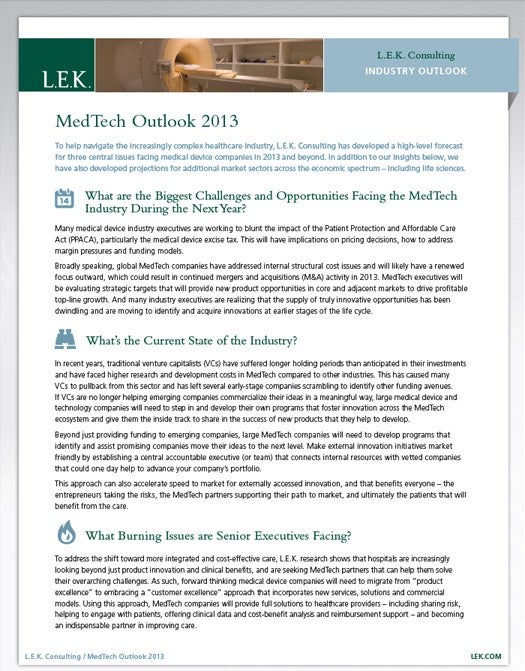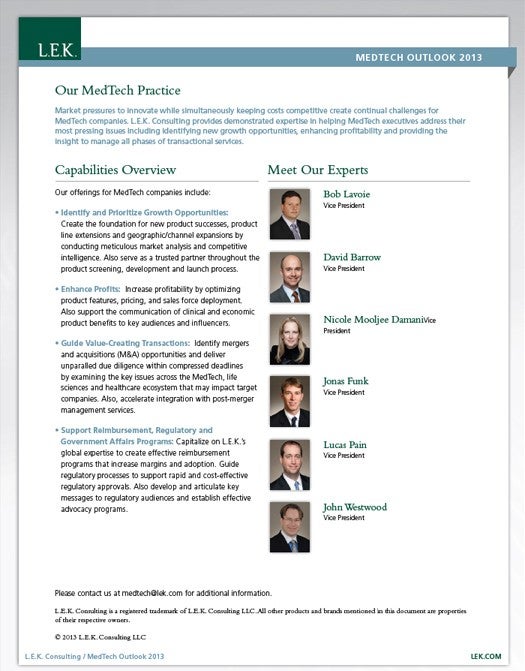
Summary
What are the Biggest Challenges and Opportunities Facing the MedTech Industry During the Next Year?
Many medical device industry executives are working to blunt the impact of the Patient Protection and Affordable Care Act (PPACA), particularly the medical device excise tax. This will have implications on pricing decisions, how to address margin pressures and funding models.
Broadly speaking, global MedTech companies have addressed internal structural cost issues and will likely have a renewed focus outward, which could result in continued mergers and acquisitions (M&A) activity in 2013. MedTech executives will be evaluating strategic targets that will provide new product opportunities in core and adjacent markets to drive profitable top-line growth. And many industry executives are realizing that the supply of truly innovative opportunities has been dwindling and are moving to identify and acquire innovations at earlier stages of the life cycle.
What's the Current State of the Industry?
In recent years, traditional venture capitalists (VCs) have suffered longer holding periods than anticipated in their investments and have faced higher research and development costs in MedTech compared to other industries. This has caused many VCs to pullback from this sector and has left several early-stage companies scrambling to identify other funding avenues. If VCs are no longer helping emerging companies commercialize their ideas in a meaningful way, large medical device and technology companies will need to step in and develop their own programs that foster innovation across the MedTech ecosystem and give them the inside track to share in the success of new products that they help to develop.
Beyond just providing funding to emerging companies, large MedTech companies will need to develop programs that identify and assist promising companies in moving their ideas to the next level. Make external innovation initiatives market friendly by establishing a central accountable executive (or team) that connects internal resources with vetted companies that could one day help to advance your company's portfolio.
This approach can also accelerate speed to market for externally accessed innovation, and that benefits everyone – the entrepreneurs taking the risks, the MedTech partners supporting their path to market, and ultimately the patients that will benefit from the care.
What Burning Issues are Senior Executives Facing?
To address the shift toward more integrated and cost-effective care, L.E.K. research shows that hospitals are increasingly looking beyond just product innovation and clinical benefits, and are seeking MedTech partners that can help them solve their overarching challenges. As such, forward thinking medical device companies will need to migrate from “product excellence” to embracing a "customer excellence" approach that incorporates new services, solutions and commercial models. Using this strategy, MedTech companies will provide full solutions to healthcare providers – including sharing risk, helping to engage with patients, offering clinical data and cost-benefit analysis and reimbursement support – and becoming an indispensable partner in improving care.
Sample Visuals
02142018170216


